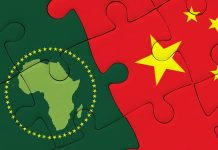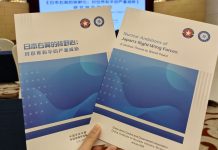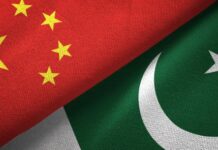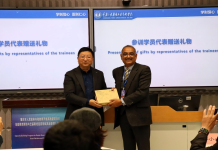BEIJING: As Taliban take steps to stabilize the situation and pursue international recognition, Chinese state-owned enterprises (SOEs) and private firms are employing different investment strategies in the war-torn country, with the former exercising extreme caution in carrying out new projects and the latter eager to tap into a market where “a thousand things wait to be done.”
While the wait-and-see approach is a result of SOEs weighing up both political security risks and China’s national strategy, the boldness of risk-taking private firms also underscores China’s successful diplomacy with the Taliban, which lays the foundation for the safe and smooth operation of Chinese businesses in Afghanistan.
Chinese private firms are set to stand firm in Afghanistan, despite Western governments’ potential sanctions on the Taliban, a move that maliciously aims to advance Western geopolitical objectives and stifle China’s economic interests, said industry insiders.
Chinese players’ economic engagement – in contrast to some Western media’s hype of “exploiting” Afghanistan’s rich mineral deposits after the US withdrawal – could deliver genuine investment and technical support to Afghanistan, aiding it in economic reconstruction after the current chaos, analysts said.
Most SOEs that have a presence in Afghanistan have been assessing the Taliban’s new policies and drawing up response plans, the Global Times learned.
A spokesperson of a state-owned enterprise, who spoke on condition of anonymity, told the Global Times on Monday that their moves in Afghanistan “will be in line with Chinese national strategy,” regarding the impact of a reported Western-led sanction on Taliban.
The company has built a highway for Afghanistan and construction was completed two years ago.
On Sunday, US President Joe Biden said that the decision on sanctions against the Taliban will “depend on their conduct.” The UK is reportedly pushing for sanctions against the Taliban at a G7 meeting that is scheduled to take place on Tuesday.
Chinese businessmen and observers said the possible sanctions may include travel restrictions, limiting the raising, use and flow of funds, international recognition, and dealings with businesses with other countries.
In the worst case scenario, it could cut companies operating in Afghanistan off from the global banking system – as is the case of how the West is sanctioning Iran, which could be the “last straw” that forces big Chinese companies out of the country, analysts said.
– The Daily Mail-Global Times News exchange item






